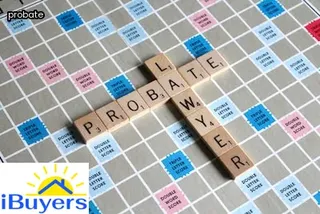Navigating probate and real estate in Alabama can be complicated, so it is important to understand your rights and responsibilities. The basics of probate court proceedings in Alabama are relatively straightforward but it is important to familiarize yourself with the process.
Probate is the legal process that takes place after someone passes away and involves validating a will and settling the deceased’s assets. In order to open a probate case, an application must be filed at the county courthouse in the county where the deceased resided.
The next step of probate court proceedings requires that notices be sent out to all interested parties informing them of the case opening. After this step has been completed, any objections or disputes about the will must be presented in court as well as any claims against the estate by creditors.
Once these matters have been settled, creditors may need to be paid off using estate funds and assets may need to be dispersed among beneficiaries according to what was outlined in the will or trust document. It is possible for an executor or administrator to handle some of these duties with prior approval from the court.
It is important to follow all of these steps carefully when navigating probate and real estate in Alabama as failure to do so could result in complications down the line.

When it comes to navigating probate and real estate in Alabama, understanding the role of an executor is essential. An executor is someone appointed by a court to take charge of a deceased person's estate and ensure that their wishes are carried out as outlined in their will.
The executor must manage the deceased person's assets, distribute them according to the will, and pay any taxes owed on the estate. They must also secure and manage any real estate owned by the deceased until it can be properly distributed.
Furthermore, they must inform creditors of the death, respond to claims against the estate, and handle other administrative duties such as preparing a final inventory of possessions for probate court. While it is possible for family members to take on this role without professional assistance, it is often recommended that an experienced attorney be consulted in order to ensure that all legal requirements are met.
When an individual dies, their assets and property must be taken care of in order to fully close out their estate. In Alabama, this is done through a process called probate.
The executor of an estate is responsible for overseeing the probate process, as well as any real estate that may be involved. Executors must make sure all debts are paid, taxes are taken care of and the remaining assets are distributed in accordance with the wishes of the deceased.
They must also keep records and provide documentation for everything related to the probate proceedings and real estate transactions. Additionally, they are legally required to inform all heirs or beneficiaries about their rights and responsibilities under Alabama law.
It is essential that executors understand their role in closing out an estate so that everything can be handled in a timely manner and with minimal legal issues.

Navigating probate and real estate in Alabama can be a daunting task for executors. It's important to understand your rights and responsibilities when dealing with probate in the state of Alabama.
Knowing the laws behind probate proceedings is key, as well as understanding what must be done in order to complete the process. Executors should familiarize themselves with the various procedures that are associated with probate such as submitting the required paperwork and filing the necessary documents with the court system.
Additionally, they should become knowledgeable on how to distribute assets among heirs according to state law. Understanding any applicable tax implications is also important so that executors can properly manage their fiduciary duties.
By learning all of these elements, executors can ensure that they are prepared and equipped to properly navigate through the complexities of Alabama’s probate and real estate systems.
Navigating the probate process in Alabama can be a complicated and time-consuming process. There are several steps that must be taken in order to ensure everything is done correctly and efficiently.
It is important to understand the rights and responsibilities of those involved in the process, such as the executor or administrator, heirs or beneficiaries, creditors, and court-appointed lawyers. To begin, it is essential to understand the difference between probate property and non-probate property.
Probate property includes assets that are owned solely by the deceased person, while non-probate property includes assets that are jointly owned with someone else or have already been designated for another beneficiary. It is also important to know what documents will be required for each step of the process, including an original death certificate, an inventory of all assets, any applicable tax forms, and proof of debts owed by the deceased person.
Once all documents have been gathered, they must be filed with the probate court in Alabama. The court will then review all documents before officially appointing an executor or administrator who will handle all aspects of settling the estate.
Afterward, it is their responsibility to pay any taxes due on behalf of the deceased person and distribute assets according to their wishes as stated in their will or trust document.

Navigating probate and real estate in Alabama can be a daunting process that requires understanding your rights and responsibilities. Probate is the legal process of proving the validity of a will and distributing the deceased person's assets to their heirs.
One important aspect to consider when navigating probate in Alabama is estimating costs associated with it. Generally, costs for probate proceedings are based on the value of the estate, including any real property, such as homes or land.
Additionally, court filing fees and other related expenses must be taken into account when calculating total cost. If there are any disputes among heirs or creditors, legal fees can also add up quickly.
It's important to remember that these costs are paid out of the deceased person's estate before any assets can be distributed to heirs, so it is essential to obtain accurate estimations before beginning the probate process.
When navigating probate and real estate in Alabama, it is important to make sure that assets are properly distributed during the process. This can be a challenging task as the laws governing probate in Alabama can vary depending on the size of the estate and the specific circumstances surrounding it.
Understanding your rights and responsibilities as an executor or estate administrator is key to ensuring that all assets are divided equitably amongst beneficiaries. Additionally, knowing how to create a comprehensive inventory of all assets, including any joint accounts, trusts, or other property, can help ensure that all aspects of the probate process move along smoothly.
It is also important to understand any applicable taxes or fees associated with probate in Alabama so that there are no surprises when it comes time to distribute assets. Working with a knowledgeable real estate professional can help make sure that all legal requirements are met throughout the process and that everything runs as smoothly as possible.

In Alabama, estates are subject to the probate process if they exceed the state-mandated minimum value. The types of property subject to probate typically include real estate, bank accounts, investments, and other personal assets.
When determining whether a deceased person's assets will be subject to probate in Alabama, it is important to remember that any property owned solely by the decedent must go through the probate process in order to transfer ownership. Additionally, any jointly held assets or those with named beneficiaries may also require probate proceedings.
It is essential for all individuals navigating the legal system to understand their rights and responsibilities when dealing with probate and real estate matters in Alabama. Estate planning tools such as wills, trusts, and powers of attorney can help make these processes less complicated and time-consuming.
An experienced attorney can provide guidance on how best to protect your interests during this process.
Navigating probate and real estate in Alabama is a complex process that can leave many individuals feeling confused and overwhelmed. There are several common pitfalls that you should be aware of when settling an estate in the state.
One issue to be aware of is the failure to properly transfer title from a deceased individual’s name to their heirs. This can cause legal complications down the road if not done correctly, so it is important to understand your rights and responsibilities regarding title transfer.
Additionally, failure to adhere to standard Alabama probate laws can also lead to delays in settlement or even more serious consequences. It is important to be aware of issues such as notices of creditors’ claims, payment deadlines, inventory requirements and other legal requirements before making any decisions or taking action with an estate.
Taking the time to understand all aspects of Alabama probate law can help ensure that the process goes as smoothly as possible and that all parties involved are properly taken care of.

Filing a will for probate with the state of Alabama can be a complex process. It is important to understand your rights and responsibilities before initiating the probate process.
To start, you must make sure that the deceased's will is valid in accordance with Alabama law. After determining the validity of the will, it must be filed with the probate court in the county where the deceased lived at the time of their death.
When filing, you will need to include several documents, such as an original copy of the will and a death certificate. If there are multiple heirs listed on the will, they may also need to sign off on its contents.
Once all necessary documents have been submitted to the court, they must be reviewed by a judge or other authorized personnel to decide whether it should be allowed into probate. If approved, further steps may be necessary in order to complete estate administration or real estate transactions related to the deceased's assets.
It is important to consult with an experienced attorney if any questions arise throughout this process so that you can properly navigate probate and real estate in Alabama while understanding your rights and responsibilities.
When an individual passes away without a will in Alabama, the intestate succession laws come into play. In this situation, the state decides how assets are distributed to the deceased’s heirs.
For example, if there is no surviving spouse, children or grandchildren, then the estate would go to the parents of the deceased. If there are no living parents, then siblings and other close relatives would be entitled to assets from the estate.
It is important for executors or administrators of an estate to understand these rules in order to ensure that all rights and responsibilities are met when navigating probate and real estate in Alabama. It is also important to consult with an attorney who specializes in this area since intestate succession laws can vary from state to state and may become complex due to family relationships.

When it comes to navigating probate and real estate in Alabama, it is essential that heirs and beneficiaries understand their rights and responsibilities when going through the process. Probate is a legal process that occurs after someone dies and involves the distribution of assets to their heirs or beneficiaries.
In Alabama, the rights of an heir or beneficiary begin as soon as they are named in the deceased’s will or when they receive letters of administration. As an heir or beneficiary, one has the right to receive a copy of all documents related to their inheritance including deeds, titles, wills, court records, and other pertinent information.
Furthermore, depending on the size of the estate, there may be additional taxes and fees associated with probate which must be paid in order for assets to be released. Heirs and beneficiaries have the right to challenge any decisions made by executors or administrators if they feel like those decisions are not in line with what was stated in the will or letters of administration.
Additionally, if an heir or beneficiary wishes to remain informed about what is happening during the probate process they have a right to attend all court proceedings. Lastly, heirs and beneficiaries have a responsibility to provide accurate information regarding their identity as well as any financial information required by estate attorneys or administrators throughout probate proceedings.
Understanding these rights can help ensure that heirs and beneficiaries get exactly what they are entitled to when navigating probate and real estate in Alabama.
Navigating probate and real estate in Alabama can be a daunting experience, and understanding your rights and responsibilities is essential for protecting your real estate assets during the probate process. Knowing which steps to take can help you avoid legal pitfalls that could otherwise delay or complicate the process.
It’s important to understand the laws of your state, as they vary from jurisdiction to jurisdiction. In Alabama, probate is the legal process of settling an estate after someone passes away.
Real property must be distributed according to the deceased person’s will or under state law if there is no valid will. Estates are administered through either formal or informal probate proceedings, depending on the size and complexity of the estate.
During formal proceedings, a personal representative (usually a family member) is appointed by the court to administer assets and pay debts associated with the decedent's estate. Informal proceedings allow assets to be distributed without court supervision in cases where there are few debts and/or assets.
Knowing which type of proceeding applies in each situation can help ensure that assets are protected throughout the process. Additionally, it’s important to understand any tax implications involved with transferring real property after death, as well as any other potential liabilities that may arise due to outstanding debt or other liens against the estate.

The probate process in Alabama requires a few documents to be completed and filed with the court. The most important document is the Last Will and Testament, which outlines how the deceased person's assets will be distributed.
Other required documents include an Inventory of Assets, Final Accountings, and Release of Claims from Creditors. The court may also require documentation such as Affidavits of Heirs, Notices to Creditors, and Waivers of Rights.
Depending on the type of property owned by the deceased person, additional documents may be necessary. If real estate is involved in the probate process, a deed must be filed with the court to transfer ownership to the intended beneficiaries.
All forms must be properly filled out and signed in order for them to be accepted by the court. It’s important for those navigating probate and real estate in Alabama to understand their rights and responsibilities when it comes to completing these necessary documents.
Once an estate has been opened in Alabama, the next step is to obtain letters testamentary. These documents grant the executor or administrator of the estate authority to act on behalf of the estate and its beneficiaries.
It is the executor’s responsibility to ensure all creditors are paid before distributing assets to beneficiaries. This can be a lengthy process as it involves identifying all creditors, verifying amounts owed, and obtaining payment from either the deceased’s assets or other sources, if available.
Once all debts are paid, the executor must notify all beneficiaries of their inheritance and distribute funds accordingly. In Alabama, certain steps must be taken for both probate and real estate transactions that involve estates; understanding these steps and your rights and responsibilities will help guide you through the process.
Yes, estates must go through probate in Alabama. Probate is the legal process of transferring an individual’s assets to their heirs after they pass away.
In Alabama, probate is a court-supervised process that is necessary to transfer title to real and personal property. During the probate process, all creditors of the deceased are notified and given an opportunity to make claims against the estate.
Any debts or taxes must be paid out of the estate before any assets can be distributed to heirs. It is important for beneficiaries and executors of an estate in Alabama to understand their rights and responsibilities related to navigating probate and real estate transactions in order to ensure that all legal requirements are met and that the deceased person’s wishes are properly carried out.

Yes, you can sell a house while in probate in Alabama. The process of selling real estate during probate is known as “probate real estate sales” and it requires the executor of the estate to obtain court approval before any transaction can take place.
Before selling a home in probate, the executor must first identify all interested parties, such as heirs and creditors, and provide them with notice of their rights to the property. The executor must also obtain an appraisal of the property for fair market value, get court approval for the sale, list the home on the open market or find a buyer through other means, and then finally close escrow when all conditions are met.
Although navigatingprobate real estate transactions in Alabama can be complex, understanding your rights and responsibilities will ensure that everything is done properly and in accordance with the law.
When it comes to navigating probate and real estate in Alabama, understanding your rights and responsibilities is key. For those looking to avoid probate on their house in Alabama, there are a few steps to take.
First and foremost, speak with legal counsel about the best way to protect your assets. In some cases, joint tenancy or transferring ownership of the home into a living trust can be used as strategies for avoiding probate.
It’s also important to discuss any estate tax implications that may arise from these actions with an attorney who specializes in estate planning. Additionally, if you have any minor children that would be affected by the transfer of ownership, it’s important to ensure their rights are protected as well.
Finally, if you decide to transfer ownership of the home through a living trust or other legal document, make sure all documents are properly drafted and filed with the proper authorities in order to ensure your wishes are respected when probate is avoided. Taking these steps will help ensure you navigate probate and real estate in Alabama responsibly and effectively.
In Alabama, probate generally applies to assets owned by the deceased at the time of death. These include real estate and personal property such as cars, boats, furniture, art, jewelry, and financial accounts.
In addition to these items of tangible property, the deceased’s interests in trusts are also subject to probate. Probate proceedings in Alabama may also involve the distribution of intangible assets such as stocks and bonds held in a decedent's name alone or jointly with other owners.
It is important for family members to understand their rights and responsibilities when it comes to navigating probate and real estate in Alabama. A knowledgeable attorney can help guide them through this process and ensure that all assets are properly distributed according to state law.